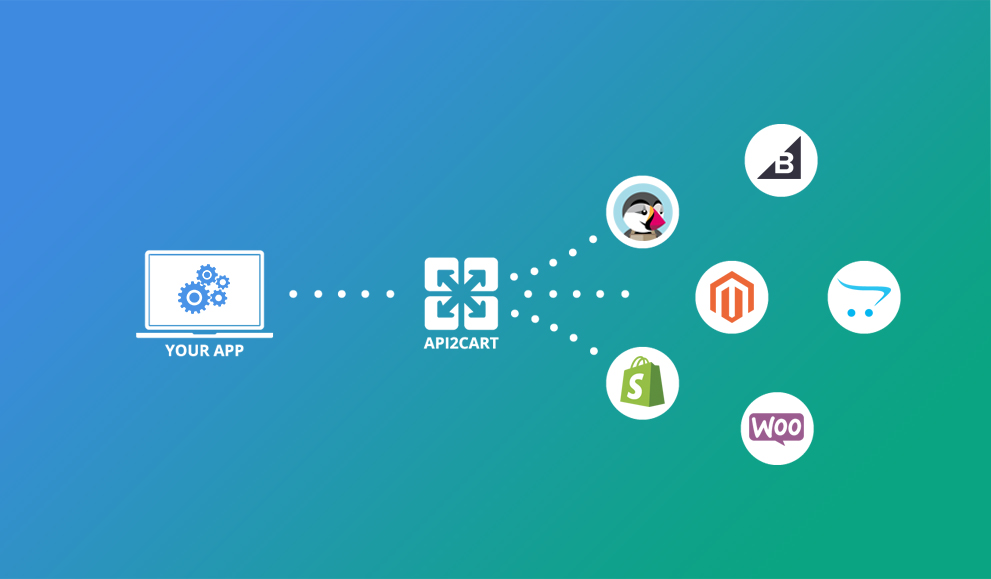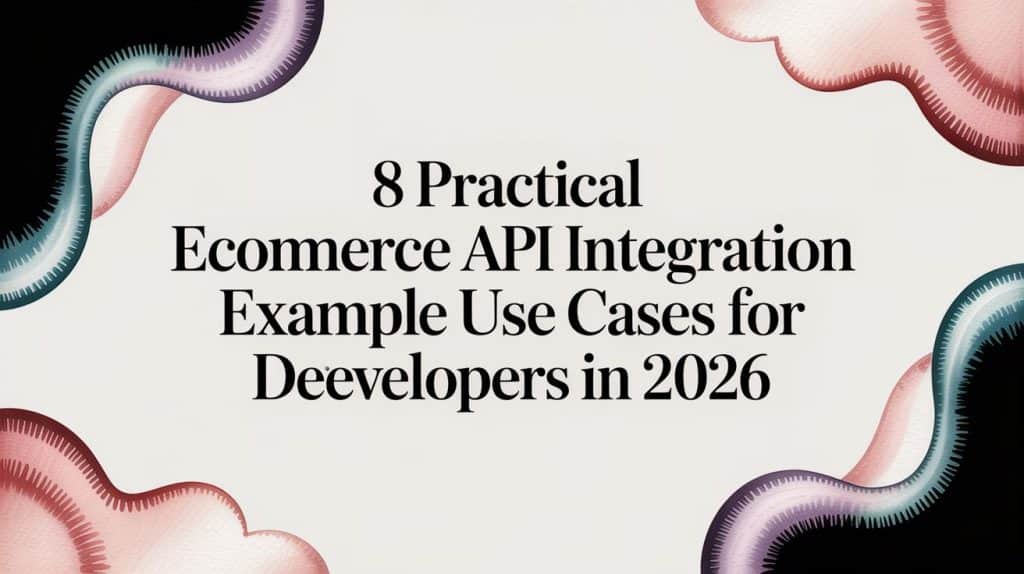
The fast-changing world of digital commerce now requires eCommerce software vendors to provide solutions that are reliable, scalable and offer the latest features to meet the demands of modern retailers. To make their platform more useful and accessible, they can connect it with famous eCommerce platforms, with Magento (now it's Adobe Commerce) being one of the top choices. Magento integrators are key to connecting third-party software with the Magento system. By choosing the right Magento integrator, software vendors can gain access to new sources of revenue. They can also speed up the release of their products. Additionally, they may increase the number of users who adopt their solutions.
In this article, we will explore the importance of Magento integration and how it can benefit eCommerce software vendors. To understand better how the integration process works, you can watch the following video:
After watching the video, you will have a clearer idea of how Magento 2 integration functions and how you can leverage it in your eCommerce solutions.
What Are Magento Integrators?
For eCommerce software vendors, Magento integrators act as strategic enablers, ensuring seamless operation of your solution within the Magento ecosystem by aligning with its architecture, APIs, and best practices. They are responsible for:
- Creating Custom Extensions or Connectors: They build strong Magento modules or APIs that connect your software to both the frontend and backend of Magento;
- Compliance and Improved Performance: Magento integration specialists ensure your site works with the latest version, gets faster and follows Magento’s guidelines;
- Facilitating Certification and Marketplace Listings: Experienced integrators can help make your product compatible with Magento and ready for the marketplace, so merchants can easily find and use it;
- Supporting Ongoing Maintenance and Updates: They manage ongoing updates to maintain compatibility with new Magento versions and evolving merchant requirements.
In summary, Magento integrators enable your product to integrate deeply and effectively with one of the world’s leading eCommerce platforms—unlocking access to thousands of Magento merchants and partners. Magento 2 integration services are key for building strong connections between your SaaS app and this large marketplace.
Key Functions of Magento Integrators
A Magento integrator allows your solution to work directly in Magento, ensuring that data is shared and processes are automated instantly. Common integration touchpoints include:
- Product Information Synchronization: Keep your software’s products and Magento stores in sync with SKUs, descriptions, images, prices and attributes;
- Order and Fulfillment Management: Automatically move your order data to Magento and then update it with tracking details, delivery status and invoices;
- Inventory Updates: Keep your inventory levels synchronized in real time, so you don’t sell more than you have and customers can always find the correct product information;
- Customer Data Integration: Exchange customer details, previous orders and customer groups to personalize both marketing and service;
- Handling Payments and Taxes: Allow safe and proper management of payments, taxes and refunds right from Magento;
- Reporting and Analytics Sync: Connect Magento to external analytics or BI tools to get unified performance insights.
Working with the ideal Magento integrator allows eCommerce software vendors to bring their product to market faster, face fewer technical risks and connect with thousands of merchants who regularly use the platform.
Top Benefits of Magento Integrators
Working with a Magento integrator can help eCommerce software vendors grow and ensure that Magento merchants have an easy and streamlined experience. Here are the top benefits of working with a Magento integrator:
1. Faster Time to Market
Magento integrators know the platform’s APIs, structure and what is needed for certification. It means software vendors can introduce their Magento integrations more quickly than creating them on their own, giving you a major advantage over others.
2. Improved Platform Compatibility
Magento is a robust but complex platform with frequent updates and strict coding standards. Integrators help your solution follow these standards which results in fewer bugs, more stability and happier merchants.
3. Access to Magento Marketplace
Experienced Magento integrators can help package your integration for listing on the Magento Marketplace. This increases visibility among thousands of Magento merchants and provides a trusted distribution channel for your product.
4. Reduced Development and Maintenance Costs
The process of hiring and training team members to look after a Magento integration is often expensive. Working with Magento integrators helps companies save on costs because they provide everything needed, proactively maintain the system and offer easy-to-use support.
5. Seamless Data Synchronization
Integrators ensure smooth, bi-directional data flow between your software and Magento, covering essential functions, such as:
- Product catalog sync;
- Inventory and pricing updates;
- Order import and export;
- Shipping and tracking info;
- Customer data exchange.
This ensures real-time accuracy and operational efficiency for merchants using your software.
5. Scalability and Future-Proofing
Magento integrators build solutions that scale with your customers’ growth and adapt to new Magento versions. This future-proofing minimizes disruption and ensures your product remains viable as Magento evolves.
6. Enhanced Merchant Adoption
Merchants find it simpler to use and believe in a product that is well integrated. When Magento integrators help improve Magento’s user experience, more users adopt the platform, remember it better and provide better reviews.
7. Strategic Technical Guidance
Besides improving software, Magento integrators guide vendors on architecture, scenarios and good practices, ensuring their software is valuable in Magento.
By leveraging the expertise of Magento integrators, eCommerce software vendors can move faster, serve merchants better, and gain a strategic foothold in one of the world’s leading eCommerce platforms.
Using API2Cart as the Right Magento Integrator
API2Cart is a unified API integration platform that enables software vendors to connect their eCommerce software to Magento and 60+ other leading eCommerce platforms and marketplaces, including Shopify, WooCommerce, BigCommerce, OpenCart, PrestaShop, and others via a single, standardized API. For vendors targeting Magento, API2Cart offers deep, flexible access to Magento’s core data—without the need to build or maintain individual connections.

Key Reasons to Choose API2Cart as a Magento Integrator
- Rapid Magento Integration Without Internal Development
- Access to 100+ Magento API Methods
- Product data sync (SKUs, images, prices, categories);
- Order management (create, update, retrieve orders);
- Customer data handling;
- Inventory and stock updates;
- Cart abandonment and tracking data.
- Support for Multiple Magento Versions
- Multi-Platform Advantage
- Enterprise-Level Reliability and Security
- Technical Support and Onboarding Guidance
With API2Cart, software vendors can avoid the complexity of Magento’s native APIs and architecture. The platform handles all the heavy lifting, allowing you to integrate with Magento in days instead of months.
It provides comprehensive support for Magento operations, including:
This gives eCommerce software vendors everything they need to deliver robust, real-time functionality to Magento merchants.
It handles the details of version compatibility so developers don’t have to. It makes your solution ready for the future without requiring constant internal maintenance.
While API2Cart is a powerful Magento integrator, its true value lies in enabling multi-platform eCommerce integration. If you’re targeting not just Magento but also other platforms, API2Cart becomes a scalable partner for unifying all integrations through a single API interface.
This service is designed for growth, offering strong security, reliable availability and expert support for enterprises. The system is built to handle a lot of data securely, so it is perfect for SaaS platforms, ERP providers, CRMs, shipping software, and marketing automation tools.
You also have access to onboarding assistance, API documents and suggestions for integrating the platform with your team’s systems. Their support team also helps resolve technical challenges and optimize API usage.
For eCommerce software vendors seeking a reliable, efficient, and future-proof Magento integration solution, API2Cart is the ideal Magento integrator. It helps you move fast, integrate smart, and stay ahead in a highly competitive eCommerce environment. To know more about how API2Cart works, book a FREE demo with our managers.
Conclusion
In today’s fast-changing eCommerce world, providers of software must ensure their integrations are smooth and perform well. It is thanks to Magento integrators that third-party solutions can be used with the complex Magento platform.
With the help of the right Magento integrator, eCommerce software vendors can speed up their time to market, save money on development, improve how well their systems integrate and join a large Magento business network. If you are supplying ERP, CRM, shipping, marketing or analytics features, a solid connection with Magento helps you stay ahead of others in the market.
In summary, thanks to API2Cart, software providers are able to connect their tools with Magento and other leading platforms with just one API. Magento integration is a must for eCommerce software vendors who are serious about achieving growth and future success.
FAQs
Why should eCommerce software vendors use API2Cart as a Magento integrator?
API2Cart enables software vendors to connect their solutions with Magento and 60+ other eCommerce platforms through a single unified API. It eliminates the need to develop and maintain multiple separate integrations, provides access to 100+ Magento API methods, and ensures full compatibility with different Magento versions. This approach saves development time, reduces maintenance costs, and accelerates product delivery.
What types of Magento data can I access and manage through API2Cart?
API2Cart allows developers to manage all essential Magento store data, including products, orders, customers, stock levels, and abandoned carts. It supports operations such as retrieving, adding, updating, and syncing data in real time, ensuring that your SaaS solution stays fully aligned with Magento merchants’ activities across all connected stores.



